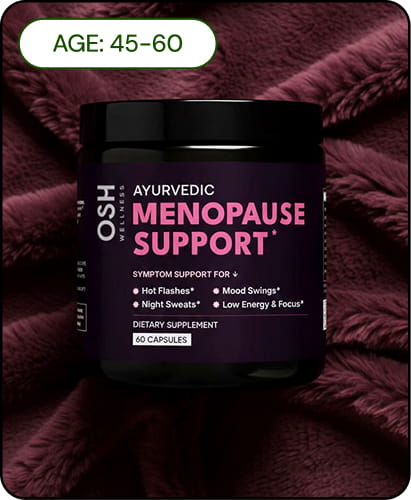Table of contents
Spontaneous abortion is a medical term for a pregnancy that suddenly ends in a miscarriage. Planned termination of a pregnancy can also be called an abortion. This article will use the term abortion to refer to planned or induced abortion.
Choosing to have an abortion is an incredibly personal decision. Many women consider not only their current circumstances but also their future plans. Even if you don’t desire children now, you may wonder, Can abortion cause infertility?
In most cases, having an abortion won’t affect your chances of getting pregnant at a later date. However, there are one or two exceptions. If you’ve wondered, “does abortion affect fertility?” read on.
The Types of Abortion
There are two predominant forms of abortion. One of them, surgical abortion, may be more likely to pose a risk to your future fertility. The type of abortion required depends on how far along the pregnancy is and the timing.
Medical abortion is when a woman takes medications intended to induce abortion. These drugs may also help clear the uterus of tissue following a miscarriage. Depending on how far along the pregnancy is, your doctor may recommend one medication, like misoprostol (Cytotec), or a combination of medications. Generally, medications are only an option if you are ten weeks pregnant or less.
A surgical abortion can similarly terminate a pregnancy or empty the womb following a miscarriage. A handful of methods are used, including vacuum aspiration, dilation and evacuation (D&E), dilation and curettage (D&C), or induction abortion. The procedure your doctor selects generally depends on how far the pregnancy has progressed.
Are There Risks Associated with Abortion?
Just like any medical procedure, there are risks associated with having an abortion. The American College of Obstetricians and Gynecologists (ACOG) usually considers abortion low-risk, especially if it is conducted in a clean and safe medical environment. The further you are along in your pregnancy, the greater the risks may become.
Complications of abortion can include:
Bleeding
In some cases, extreme blood loss may require a transfusion.
Incomplete abortion
When tissue or other products are left in the uterus, removal is required.
Infection
The risk of infection, either from the procedure or tissues remaining in the womb, can sometimes be lowered with a pre-treatment course of antibiotics.
Damage to surrounding organs
In the case of surgical abortions, nearby organs, like the bladder, can sustain accidental injury.
Abortions can also cause the uterus to become inflamed. Inflammation typically poses a threat to future fertility. However, this threat is often considered minimal.
Do Abortions Cause Asherman Syndrome?
Signs of infertility after abortion can be a scarred or inflamed uterus. Asherman syndrome is a complication of surgical abortions in which the uterine lining becomes damaged. Scarring develops in the uterus cavity, increasing a woman’s chances of miscarriage or difficulty conceiving in the future.
Asherman’s syndrome is considered rare. It can sometimes be treated by surgically removing the scar tissue and placing a balloon inside the uterus to keep it open while it heals.
Can You Get Pregnant After an Abortion?

ACOG states that having an abortion doesn’t usually affect a woman’s ability to conceive in the future. Furthermore, it generally doesn’t increase your risk of pregnancy complications or miscarriage if you get pregnant again.
Once you begin ovulating after your abortion, pregnancy is possible. For this reason, your doctor may prescribe birth control pills immediately after the abortion to avoid pregnancy. You will likely want to avoid sexual intercourse until your body heals.
If you have trouble conceiving after an abortion, the procedure may not always be the culprit. Various factors can affect a woman’s ability to get pregnant. Some fertility factors include:
Age. Fertility decreases with age, especially for women aged 35 or older.
Lifestyle. Smoking, excessive alcohol use, drug use, and other lifestyle habits can affect fertility. The same applies to your partner.
Health. Physical factors like being significantly under or overweight can impact fertility. Intense and frequent exercise regimens that affect ovulation and menstruation can make it hard to conceive.
Medical history. Certain conditions, like a history of sexually transmitted infections (STIs), chronic diseases such as diabetes, hormonal disorders like PCOS, and autoimmune disorders, can all affect your fertility.
Partner’s fertility. Women are not the only sex to suffer from fertility issues. Men’s fertility is based on semen quality. Lifestyle factors and health conditions can impact the quality and quantity of a man’s sperm.
Regardless of what you believe might be causing your infertility, contact your doctor if you are having trouble conceiving. They can suggest lifestyle changes and tests while determining whether you should see a fertility specialist.
Sometimes, habit changes, like improving your diet and returning to a healthy weight, are enough to help you conceive. Nutrient levels are essential for a healthy womb. Supplements like Fertility Support for Her can help boost your nutrition, lower your stress with adaptogens, and encourage hormonal balance, creating a supported and nourished womb.
However, in some cases, fertility supplements for women may not be enough to achieve conception, especially if the cause of infertility is uterine scarring from an abortion. Because fertility is multifaceted, reaching out to your doctor or gynecologist is always an excellent first step.
In Summary
An abortion, whether to induce the termination of a pregnancy or help clear the uterus following a miscarriage, does come with risks. Doctors generally consider the risks to be minimal and the procedures, both medical and surgical, to be very safe.
Having an abortion does not guarantee you will have fertility issues in the future. However, if you are having trouble conceiving, reach out to your health professional.








